執行成果
分項1-8【文創學程】藝術田野課程:全台灣創意研究田野調查
{{ $t('FEZ002') }}文資學院|
計畫名稱:12G205-6 高教深耕【文資學院】
計畫分項:文化資源的在地實踐
具體措施:1-8【文創學程】藝術田野課程:全台灣創意研究田野調查
執行單位:文資學院-文創學程
屏東移地研究(音樂領域)概述:Leorag, Jennicka Rhea/撰文
Our short trip to Hengchun last month turned out to be a very unique experience filled with insights on cultural preservation, environmental protection, and community development. Under the sweltering heat on what was then just the beginning of summer in Southern Taiwan, sharing the day and listening to the songs and stories of the elder ladies we met in the communities was definitely an experience of a lifetime.
On the way back to Taipei, I found myself mulling over the memories, feeling both awestruck and somehow a little somber. While I loved the whole trip, there were three main places/activities that stuck with me – Qiongma Exhibition Hall, making all-natural seasalt and tofu, and the mention of music festivals that take place in Pingtung, like Spring Scream and HearHere Music Festival. I wanted to focus on these three things in this paper.
- Preserving “Negative” Memories
While we were doing a tour of Qiongma Exhibition Hall, I asked our tour guide 老師 what agave was used for – I wondered why it was so important to the community and their history. From what I understood, the Japanese “forced” the Hengchun community to farm the agave plant that they brought over from Mexico – even if it damaged the natural ecosystem and even caused injuries on the workers. It made me wonder – why was this experience memorialized? In my country (the Philippines), stories of negative hardships are often brushed over in history books. We honor heroes but we tend to muddle or erase the negative moments from history to favor those in power, especially the recent Martial Law.
That’s why the Qiongma Exhibition Hall fascinated me a lot. When we had our eyes closed listening to 老師 sing the folk song related to agave planting, I felt the sadness and hardship stories that the land had to tell. It was heartbreaking. At the same time, it felt like a reminder that while in an ideal world, there should be no suffering, it is important to remember the suffering we go through – to celebrate getting through it, to learn from it, and to hopefully not let it happen again in the future.
- Keeping things simple and going back to our roots
While I’m not quite sure how to reproduce the method of making my own tofu in the middle of the city, I was definitely amazed by the simple life they lead over in Houwan – making their own (VERY TASTY) food with all natural ingredients, enjoying the afternoon with nature, dogs, and music. I’ve been back to my ultra-fast paced life for only a month and I’m already so drained of energy again. Even if I’m not cut out for a very simple life, I hope I can at least do something in my life that can help people like the 老師’s we met and their communities continue to live and enjoy life the way that they do. I hope they never lose the great way of living and mindset that they have.
- Developing and Promoting Culture
During some parts of the trip, our tour guide 老師 and Yu 老師 mentioned that some music festivals are actually staged in Pingtung, including Spring Scream: one of the most popular music festivals in Taiwan, to my knowledge; and HearHere: a world music festival that promotes Hengchun’s local traditional folk music and make it relevant to the younger community. Our tour guide 老師 mentioned that when these festivals take place, the grass dies in the area where the stage is and where the audience stays.
While promoting culture is important, and keeping it relevant to the youth is essential to preservation; it makes me wonder about the toll it takes on the environment, and on the community elders that are involved in the festivals. I deeply admire their hard work and commitment to preserving the culture and passing it onto the incoming generations, with projects like the Manzhou Folk Music Hall.
I hope that more people hear the music and appreciate the stories of Hengchun, and I hope that these traditions are able to stand the test of time and rapid changes in society. I definitely had the best time sharing great food with my friends, listening to marvelous stories and traditional music that thankfully continues to definite this community. I hope that in my lifetime, I can contribute something essential to communities like Hengchun and the causes that they put forward and live for.
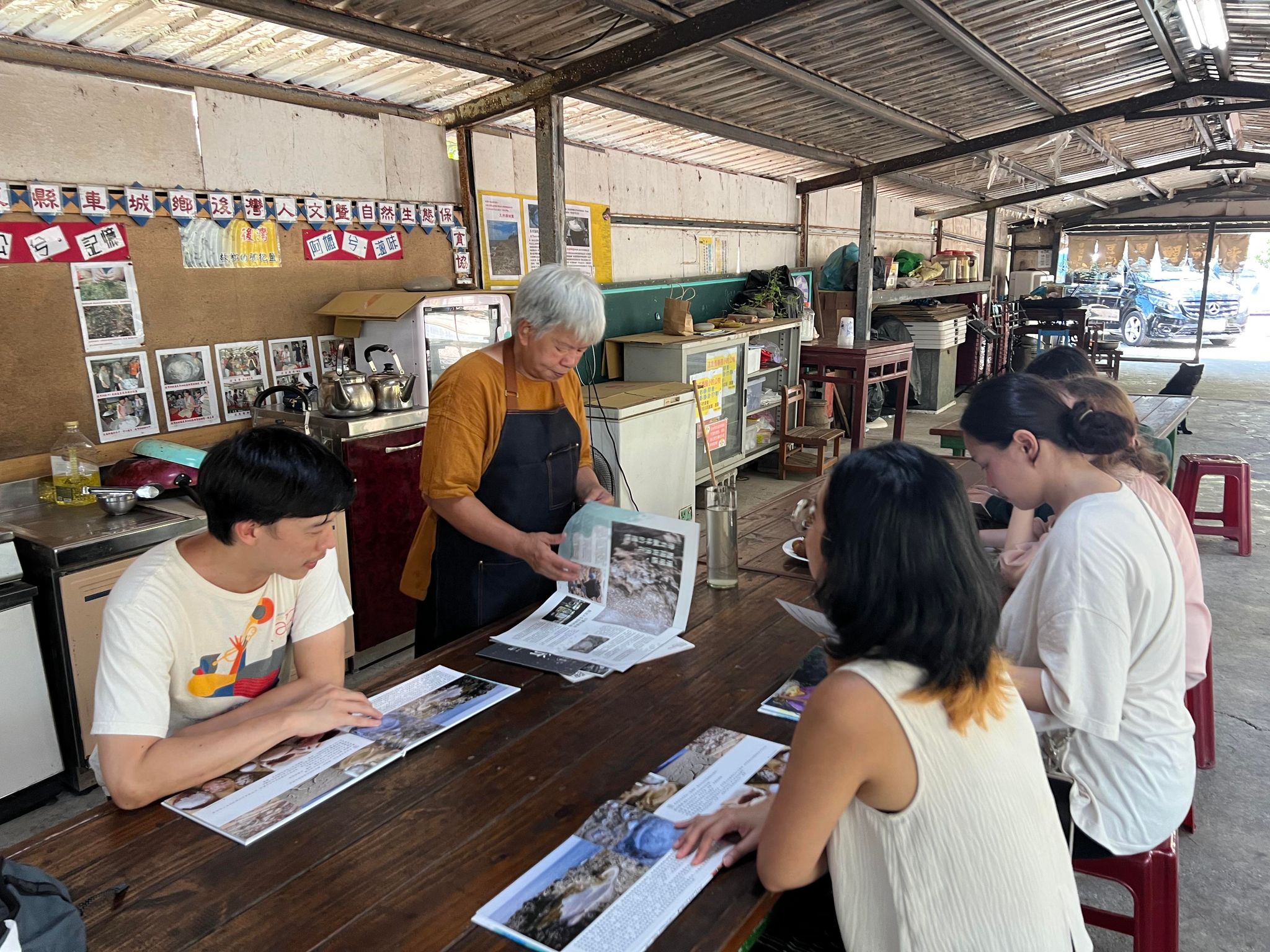
▲月琴工作坊:楊美雲講者
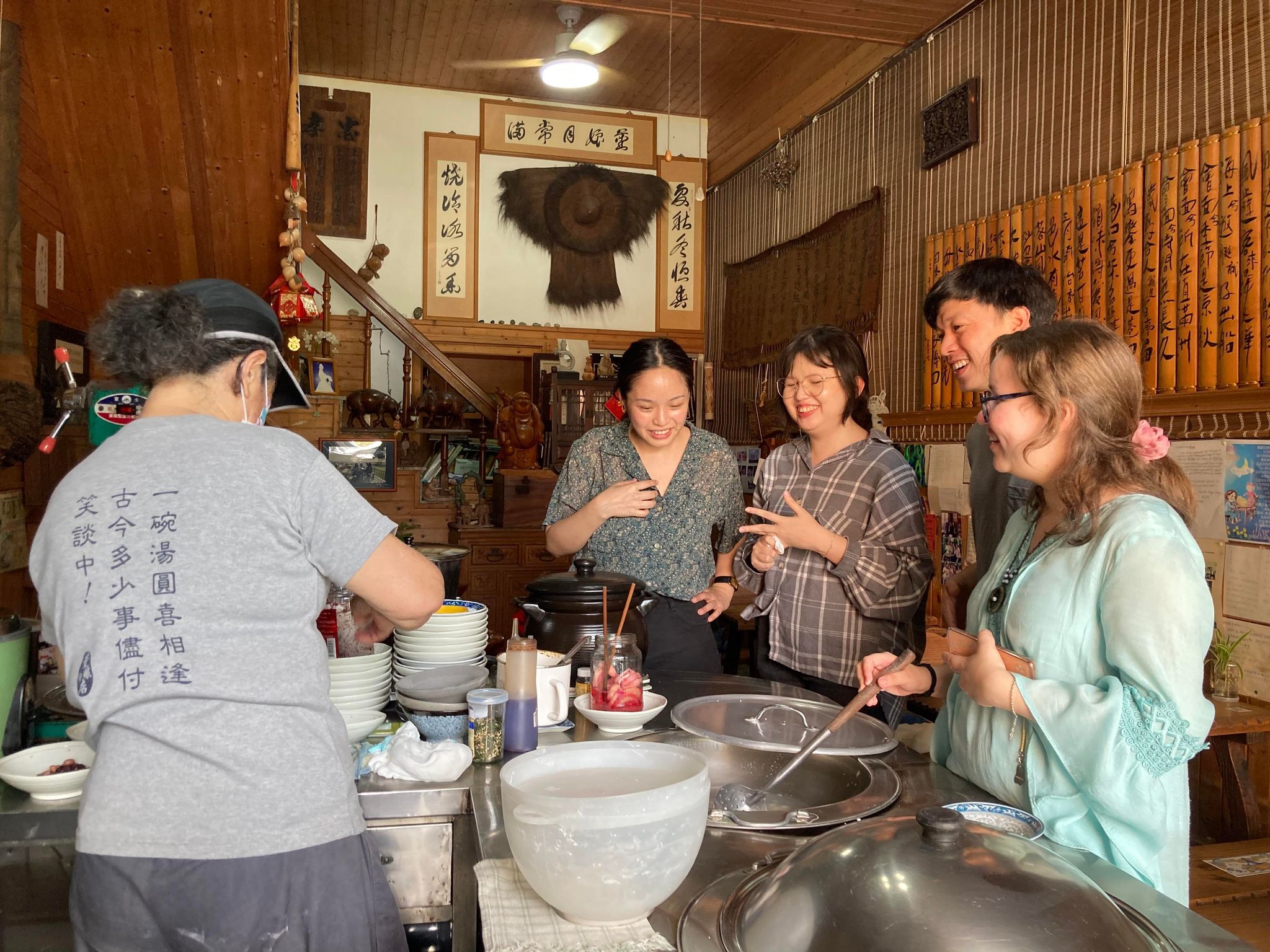
▲體驗豆花/豆腐製作I
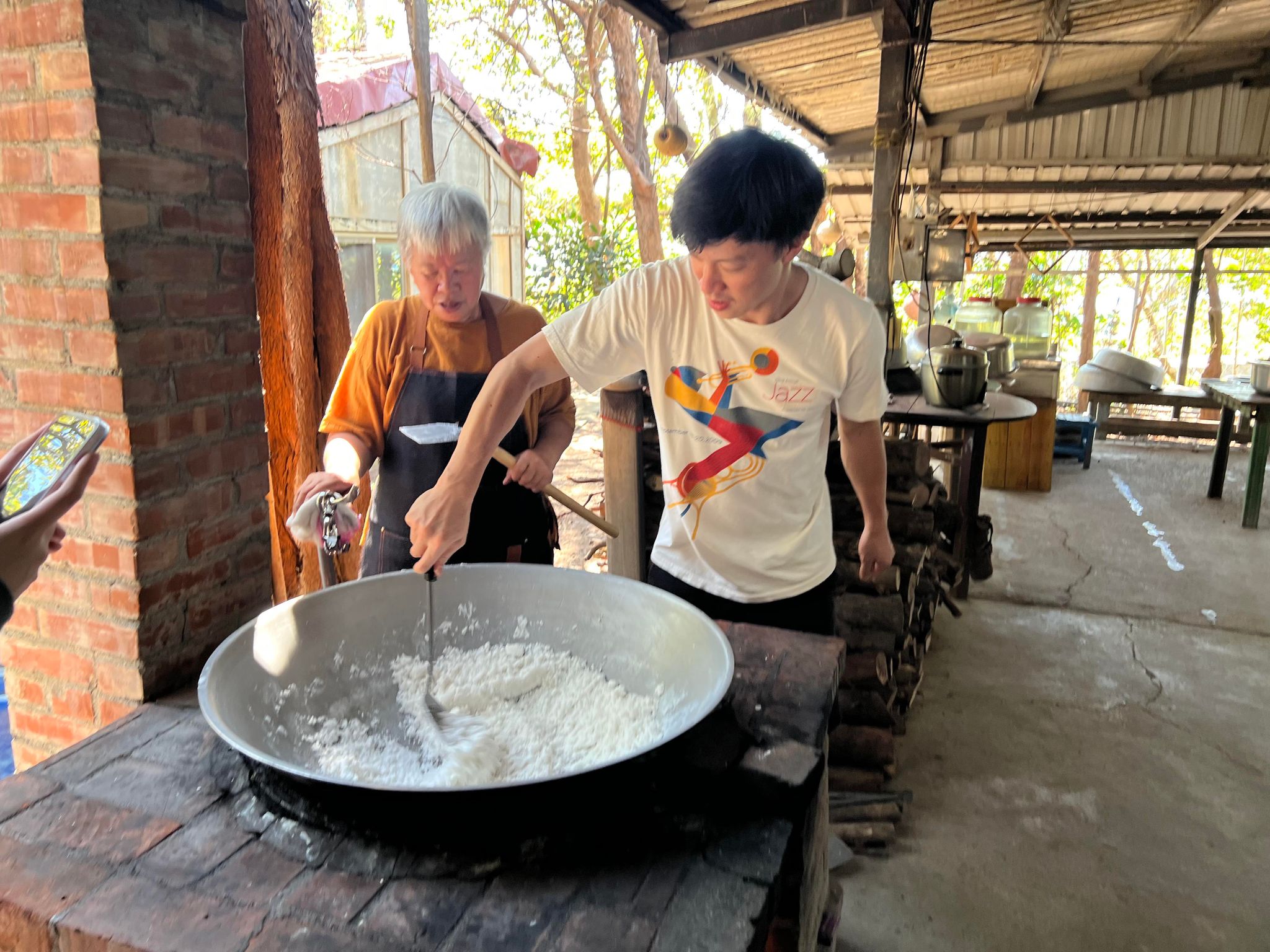
▲體驗豆花/豆腐製作II
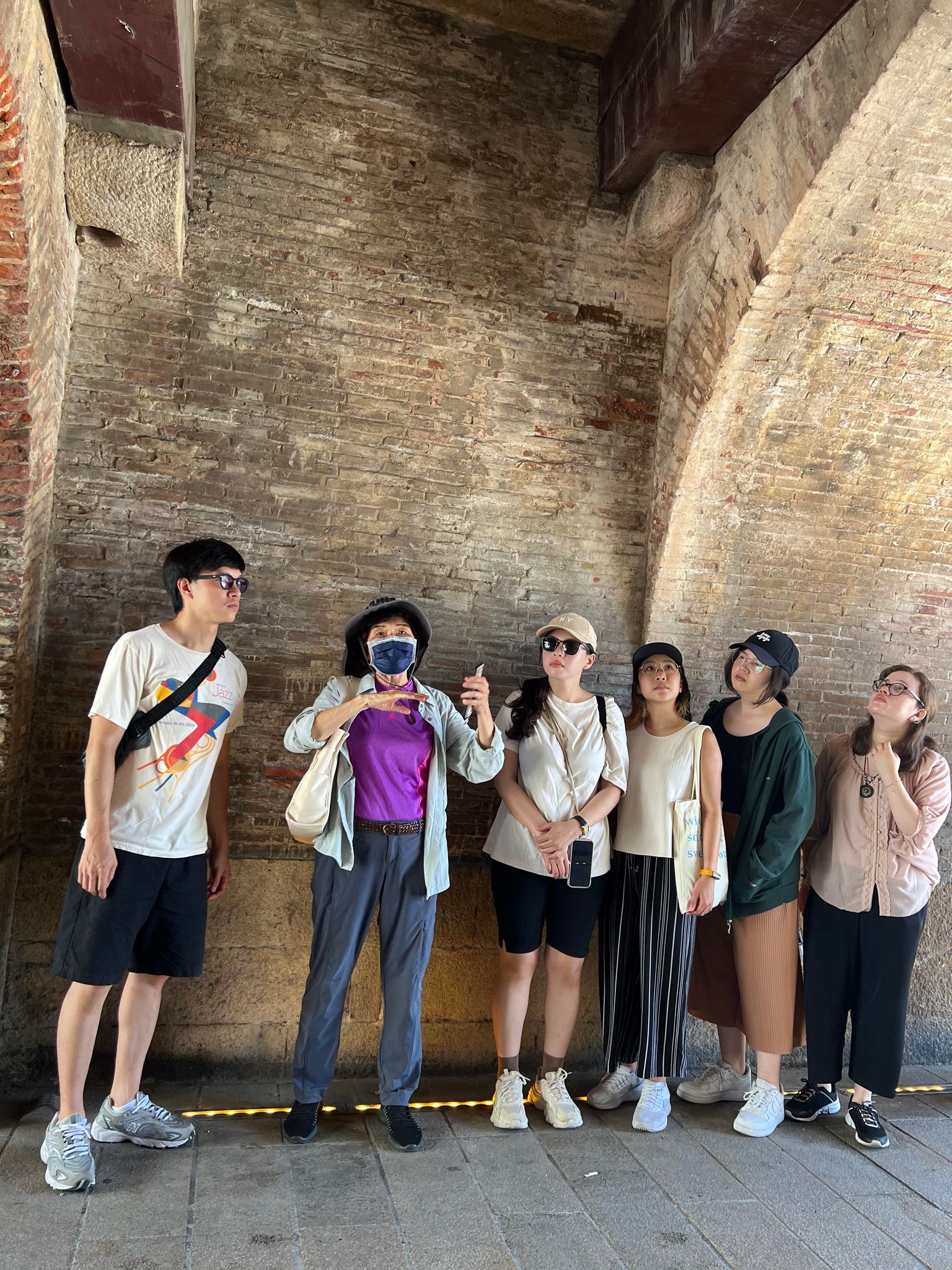
▲屏東文化導覽:林秋月講者
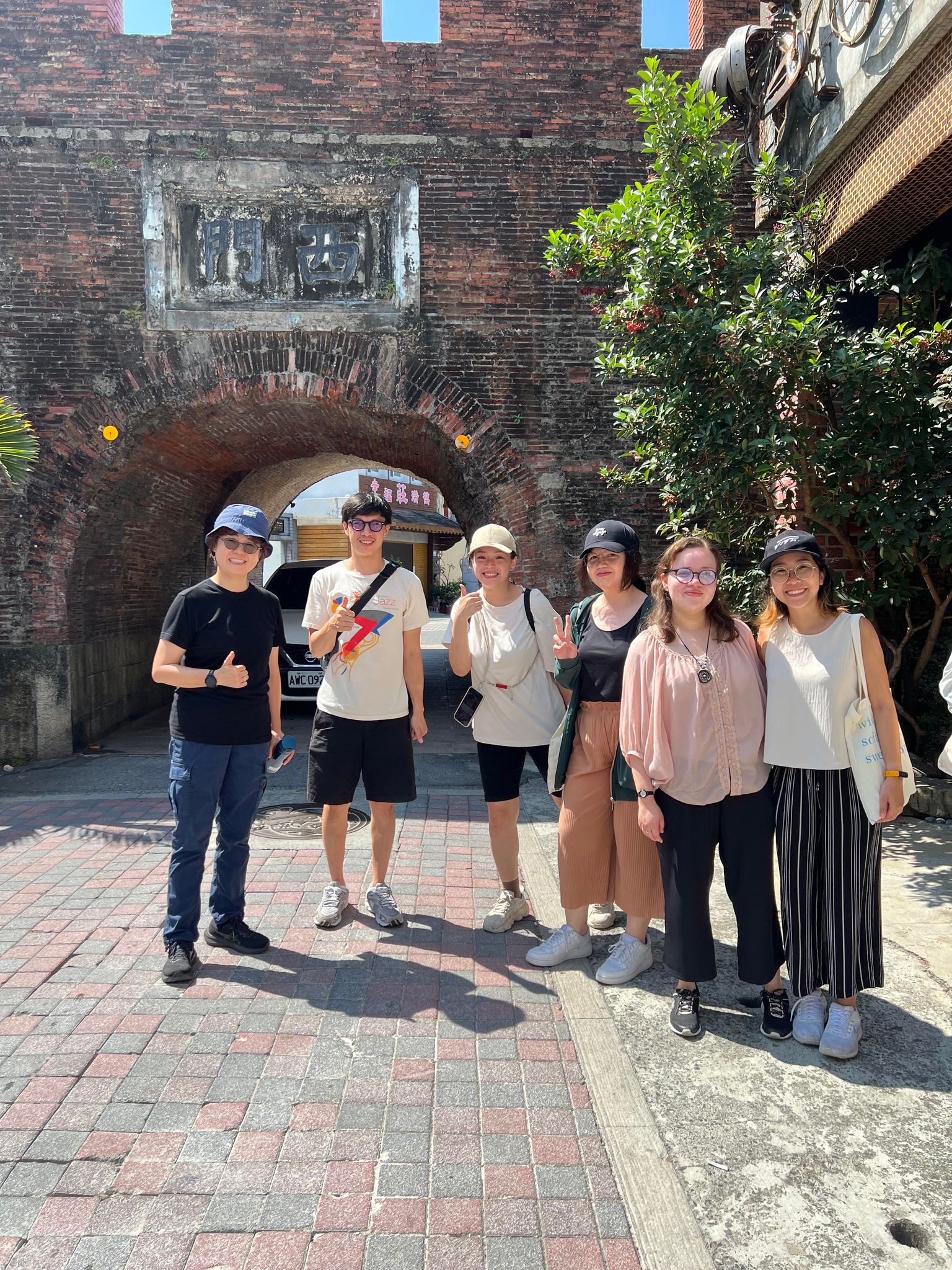
▲參訪恆春國小
{{ $t('FEZ003') }}2023-11-29
{{ $t('FEZ004') }}2023-11-29|
{{ $t('FEZ005') }}287|
